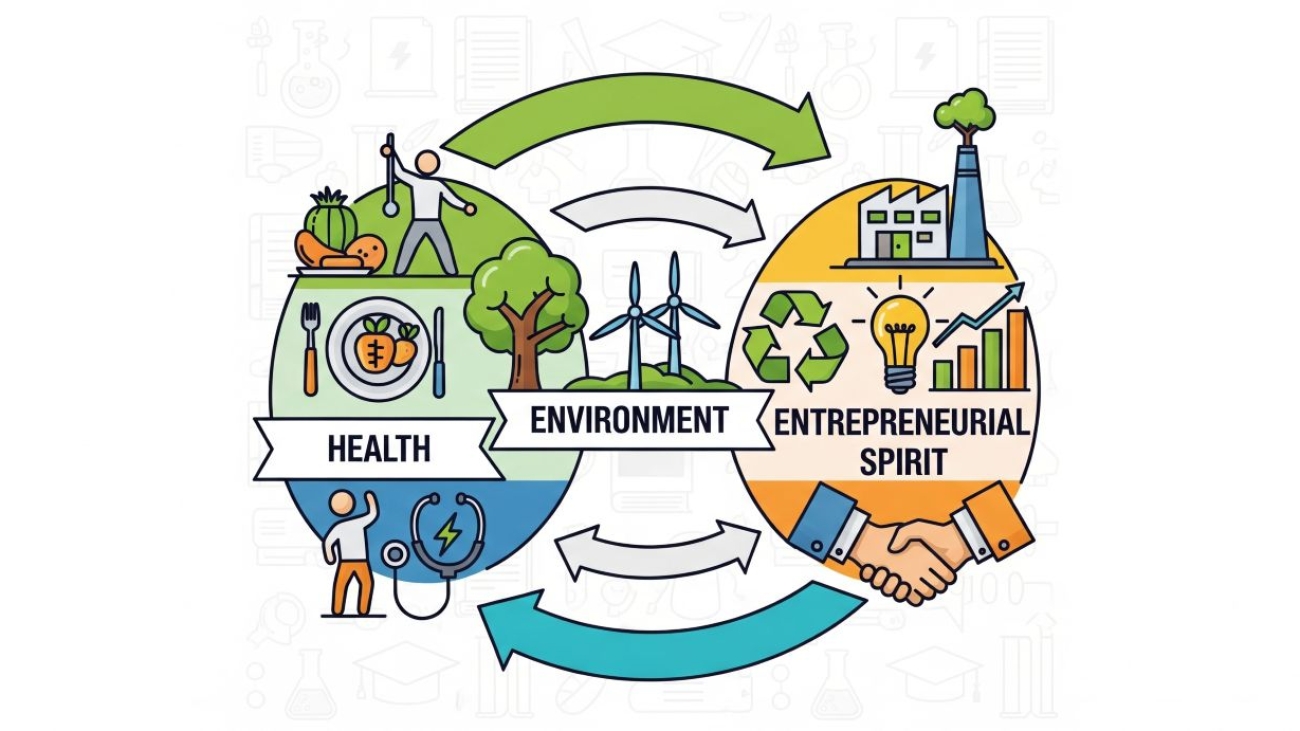Unmuhbarru.ac.id, Barru – The modern world often compartmentalizes our biggest challenges, treating public health, environmental conservation, and economic growth as separate, and sometimes competing, domains. However, a deeper look reveals a profound and often overlooked symbiotic relationship between health, the environment, and the entrepreneurial spirit. Rather than isolated variables, they form a complex, interconnected system where the well-being of one directly influences the others.
A healthy population is more capable of innovation and problem-solving, a thriving environment provides the essential resources for life and industry, and a dynamic entrepreneurial class possesses the creativity to build a future that sustains both. Understanding this integrated framework is crucial for fostering a truly sustainable and prosperous society.
The connection between human health and the environment is perhaps the most self-evident. Environmental degradation directly leads to a myriad of public health crises. For instance, air pollution from industrial emissions and vehicles is a leading cause of respiratory diseases and heart conditions globally, while plastic waste and chemical runoff contaminate water sources, jeopardizing sanitation and food safety.
The very air we breathe and water we drink, which are fundamental to human health, are products of our environment. As such, any degradation of our ecological systems poses a direct threat to our collective physical and mental well-being, creating a compelling, and urgent, need for innovative solutions that can reverse these trends and protect public health.
This is precisely where the entrepreneurial spirit becomes an indispensable force for positive change. Entrepreneurs are, by nature, problem-solvers. They identify needs and develop novel solutions, and in the context of our environmental and health crises, they are uniquely positioned to innovate. Startups focused on developing clean energy technologies, creating sustainable, biodegradable materials, or building smart agriculture systems are directly addressing the root causes of environmental damage.
These ventures not only generate economic value but also create a healthier planet for everyone, demonstrating that profit and purpose can, and must, go hand in hand. The entrepreneurial mindset transforms environmental challenges from insurmountable problems into market opportunities for creating a better world.
Moreover, the relationship is reciprocal: a focus on health and wellness can serve as a powerful catalyst for entrepreneurial activity. As individuals become more conscious of their personal well-being, a new demand emerges for products and services that support a healthy lifestyle. This consumer shift has fueled a boom in the wellness industry, from organic food delivery services and fitness technology to mental health applications and eco-friendly home goods.
An entrepreneur who recognizes this shift can build a successful business that not only meets a market need but also encourages a healthier society. This creates a virtuous cycle where personal health consciousness drives business innovation, which in turn makes a healthy lifestyle more accessible to others.
In conclusion, the destiny of human health, the environment, and entrepreneurialism is deeply intertwined. The challenges we face—from climate change to chronic disease—are too complex to be solved in isolation. A truly effective path forward lies in an integrated approach where the entrepreneurial spirit is harnessed not just for wealth creation, but for the betterment of both humanity and the planet.
By fostering an environment where innovators are empowered to prioritize a holistic vision, we can create a future where healthy people thrive in a healthy environment, propelled by the very businesses they build to solve the world’s most pressing problems. This condition as the part of symposium of ISHE 2025 to come up of academia forum in identifying problem solving if any.

